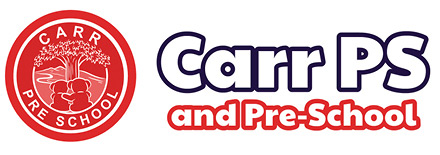Primary 5/6
Autumn Term:
Numeracy - Topics:
*Place Value - exploring number sequence to one million
*Addition and Subtraction - Using whole numbers and decimals, investigating different strategies
*Multiplication - Quick recall of all times tables
*Fractions - adding and subtracting fractions, investigating mixed numbers
*Measures (Time) - analogue and digital clock, calculating time durations
*Measures (Length) - estimation, converting lengths and solving length problems
*Shape - 2D shape sorting, symmetry and tessellation
*Shape - investigating angles
*Handling Data - Decision trees
Literacy Topics
Writing
*Demonstrate understanding that reports are used to provide information.
*Demonstrate understanding that there are at least 3 kinds of reports – chronological (history), non-chronological (science, geography) and comparative.
Grammar and Punctuation
*Nouns
*Verbs
*Adjectives
*Adverbs
*Plurals
*Pronouns
Reading
*AR reading books
*Group reading in class
*Independent reading at home and in school
World Around Us:
Our topic this term is "Early Man." During this topic we will learn
*How people used to live including roles and responsibilites
*Conditions living things need to survive
*Simple food chains
*Relationships between animals and plants in a habitat
*How people interact for transport and communication
*How sound is formed and travels
*About the reasons for movement of people in the past
PDMU:
Focus : Staying Safe and Healthy. Through this unit we will learn to
*Maintain a balance for physical and emotional health
*Maintain a balance diet
*Make informed and knowledgeable choices
*Seek accurate information when making important decisions
*Respect and value new life
*Understand that change in life is normal
*Understand bullying and how to handle difficult situations
The Arts:
Art and Design, children will
*Collect, examine and select resource materials to design and make a variety of 2D and 3D pieces of art
*Use a range of materials and tools
*Look at and talk about work of artists, designers and craft workers from their own culture and others
*Investigate mark making and use a variety of materials to mark, taking inspiration from people from the past
*Investigate the role of art through the ages
Drama, children will
*Explore creative and imaginative play situations using hot seating, tableau and freeze frames
Physical Education:
We aim to provide physical education twice per week, within these sessions we aim to
*Develop control in running, jumping, changing direction and changing speed
*Improve skills of handling, hitting, kicking and passing a ball
*Develop individual skills to partner skills
- Introduce and teach the basic skills of Highland Dance and Basket Ball.
Spring Term:
Numeracy: Topics:
Decimals
- ordering, adding, subtracting and simple equivalence
* Division
- using times table knowledge to divide
- Introduction of division with remainders
- Formal recording
*Multiplication
-Revise all multiplication facts to 12x12
- Formally record
- multiply 2 and 3 digit numbers by a single digit
*Fractions
-Simple equivalence
-Adding and subtracting fractions
-Fractions of an amount
*Types of Number
-Squared and cube numbers
- Prime Numbers
*Handling Data
-Pictographs
-Venn Diagrams
* Measure
-Units to measure length and problems associated
*Time
- Converting digital and analogue clock
- Leap year
- Timetables and time duration problems
Literacy:
*Reading
-Guided Reading groups will read aloud with the teacher and complete guided reading tasks linked with their book.
-Children will read aloud for pleasure and gain confidence in asking and answering a range of questions about their reading
*Writing
-Study procedural writing
-Investigate the grammar used in this form of writing.
- Follow Complete Spelling Programme Weekly
-Grammar and Punctuation (following progression documentation)
*Talking and Listening
- Children will listen to and take part in discussions, explanations, role-plays and presentations
- contribute comments, ask questions and respond to others’ points of view
-communicate information, ideas, opinions, feelings and imaginings, using an expanding vocabulary
The World Around Us:
Our topic is Flight. Firstly we investigate:
Flight in Nature
-express and share our ideas and opinions on flight
-recognise the characteristics of different types of birds
-compare and contrast birds
-know that birds migrate and the hazards they face
-display information using world maps
-know different methods of seed dispersal
-understand the importance of bees to the plant kingdom
Science of Flight
The History of Flight
PDMU:
Thinking and Feeling : Process in Learning
I can identify, recognise and express a range of feelings.
I respect and value the feelings of others.
I know that thoughts, feelings and behaviour are linked.
I can recognise my own positive and negative emotions.
I know that it is OK to have strong negative feelings such as anger, but it is not OK to behave in any way I like.
I have some strategies to cope with uncomfortable feelings and to calm myself when necessary. • I can identify helpful and unhelpful reactions to events causing strong emotions. • I can take responsibility for my actions.
I know that my actions affect other people as well as myself.
I can express a range of feelings in ways that do not hurt me or other people.
I can help support someone who is coping with strong feelings, such as bereavement and loss.
ICT:
Using Just to Easy - Data Base
Design and create a range of programs, systems and content that accomplish given goals, including collecting, analysing, evaluating and presenting data and information.
PE:
*Swimming - directed by swimming teachers
*Healthy Kidz - directed by Healthy Kidz Coaches











